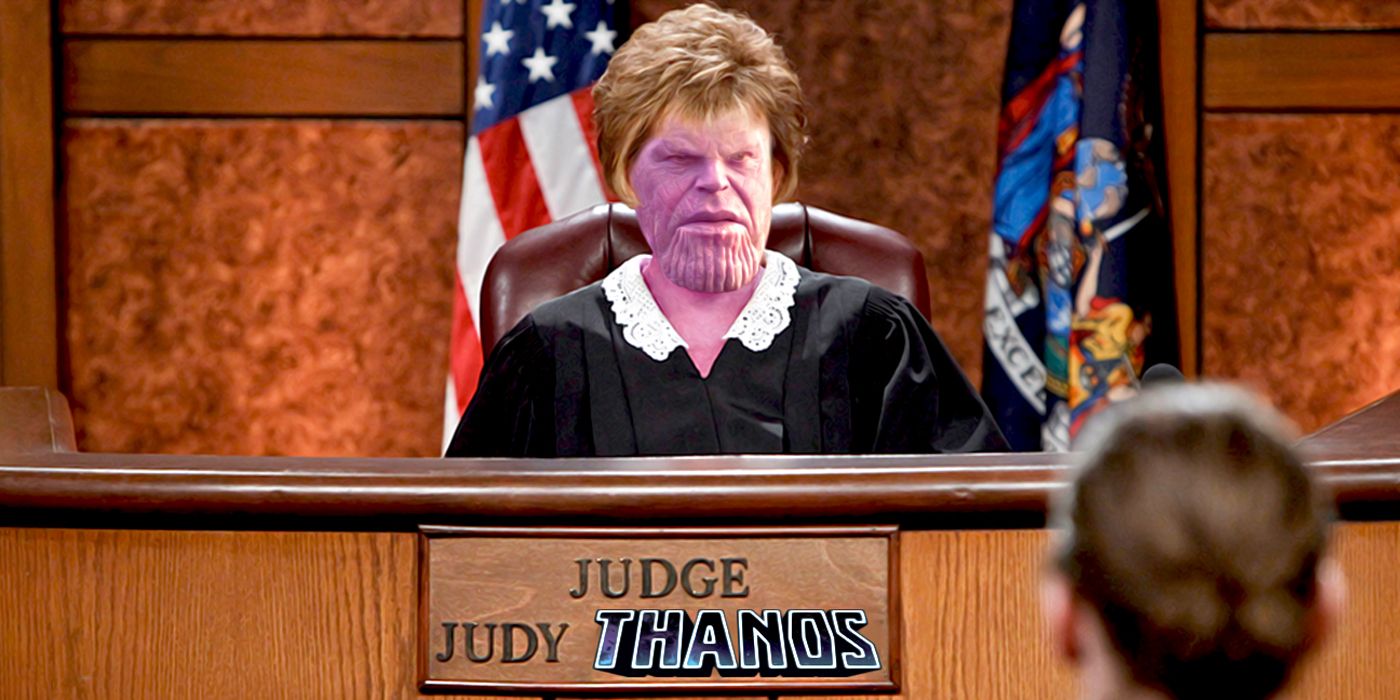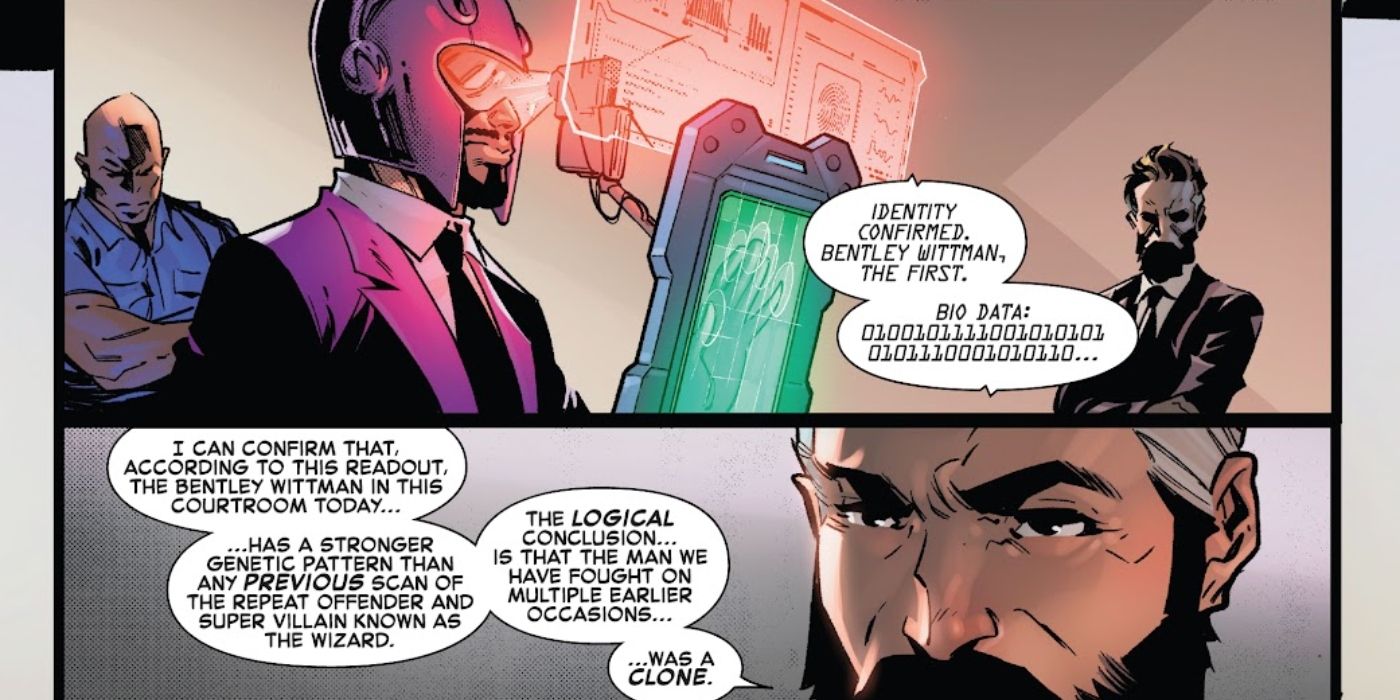WARNING: The following article contains spoilers from Fantastic Four #38, on sale now from Marvel Comics.
Marvel has always tied the heroes of their universe closely with the legal system. A good portion of their characters operate with their identities being public knowledge. That inevitably would result in the world's laws changing accordingly to accommodate those with powers.
In Fantastic Four #38 (by Dan Slott, Francesco Manna, Jesus Aburtov, and VC's Joe Caramagna), a case in family court between the Fantastic Four and the Wizard revealed that there is a legal precedent, and even nickname, for when someone is accused of a crime that was committed by a clone. She-Hulk explained that it is called "pulling a Thanos" and there is a reason why this is the case.
First, a little more context on the term itself. The legal maneuver is not just one that applies to clones. It is a blanket term that can be applied to Skrulls masquerading as someone else, doppelgangers, shapeshifters, and evil twins, as well. It is a legal precedent to be used in the event of someone being accused of a crime that was committed by someone who looks like them but is not actually them. Although this may at first sound somewhat ridiculous, this has actually happened a notable number of times in the Marvel Universe. The actions of the Skrulls in Secret Invasion was probably enough to set the precedent on its own merit.
As for why Thanos' name was invoked when making this rule, it is most likely because he has one of the most prominent cases of utilizing this tactic. As a long time enemy of Earth's Greatest Heroes, the Mad Titan has come up with hundreds of schemes to defeat them. One such scheme involved utilizing his vast knowledge of genetics to create clones of prominent members of the superhero community who were endowed with his DNA. He even cloned himself, with the copies traveling to the past and attacking Thor, thus excusing the Mad Titan from the crime.
So really, the precedent, while one that is necessary in a case of stolen identity, is one that can also give villains a lot of leeway in court. If they can find a way to plant evidence suggesting that someone else was using their identity, then it gives them a way out of being convicted. Like any such law, it can be manipulated to the advantage of someone who is smart enough to do so. Certainly, there have to be people who have benefited from this, but at the same time the law is so flexible that it can be just as easily abused.
All this came about because of Thanos using cloning as a roundabout way to attack his enemies. It's not entirely his fault, however, considering the sheer number of comic book stories that have revolved around villains masquerading as someone else. Still, the Mad Titan remains one of the most prominent users of the technique, and raises the possibility that he might have done something similar in the Marvel Cinematic Universe. Avengers: Endgame ended with a fight between the Avengers and the past version of Thanos, not the one from their timeline. This plants the seeds for the future possibility of villainous clones of the Mad Titan populating the MCU, awaiting a chance for revenge.



